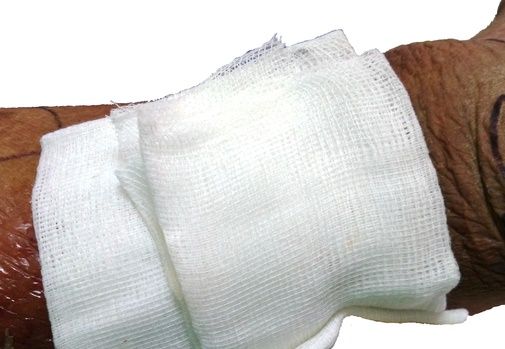A new type of ‘smart’ plaster containing a special sensor is being developed by researchers from the Technical University of Denmark (DTU). The sensor alerts health professionals if a wound becomes infected so they can closely monitor its progress.
This also has the advantage that it would no longer be necessary to remove the dressing to check the wound that potentially allows more bacteria to enter. At the same time, the correct antibiotic treatment can be chosen, thus reducing the risk of developing multi-resistant bacteria.
It is estimated that at present costs related to post-op infections amount to over 1 billion kroner per year – or around 2 percent of the Danish hospital budget. As well as saving money, the plaster could reduce the amount of time patients are hospitalised and collect data to be used as a basis for new methods of treatment.
Lab as a thing
The plaster is a product of the so-called ‘lab as a thing’ technology being developed by DTU. “The exciting thing is that the new technology influences society and the way we live when, for example, tiny laboratories are built into the things we surround ourselves with and connected to the internet to give intelligent feedback,” said Winnie Edith Svendsen, an associate professor at DTU Nanotech.
The plaster is capable of making a diagnosis itself, and the patient doesn’t necessarily have to turn up at the hospital to have the diagnosis confirmed. At present, it is relatively expensive and slow to do laboratory tests to validate a specific diagnosis, and until this is done, broad-spectrum antibiotics are given to the patient with the attendant risk of creating multi-resistant bacteria.
Ready by the summer
The prototype of the intelligent plaster is expected to be ready by the summer. In the first instance it will be tested relative to the most common bacteria-infecting wounds – for example staphylococcus .
It is hoped that eventually sensor technology combined with the existing clinical knowledge of wounds and bacteria combined in a digital platform will be able to help a lot of patients.














